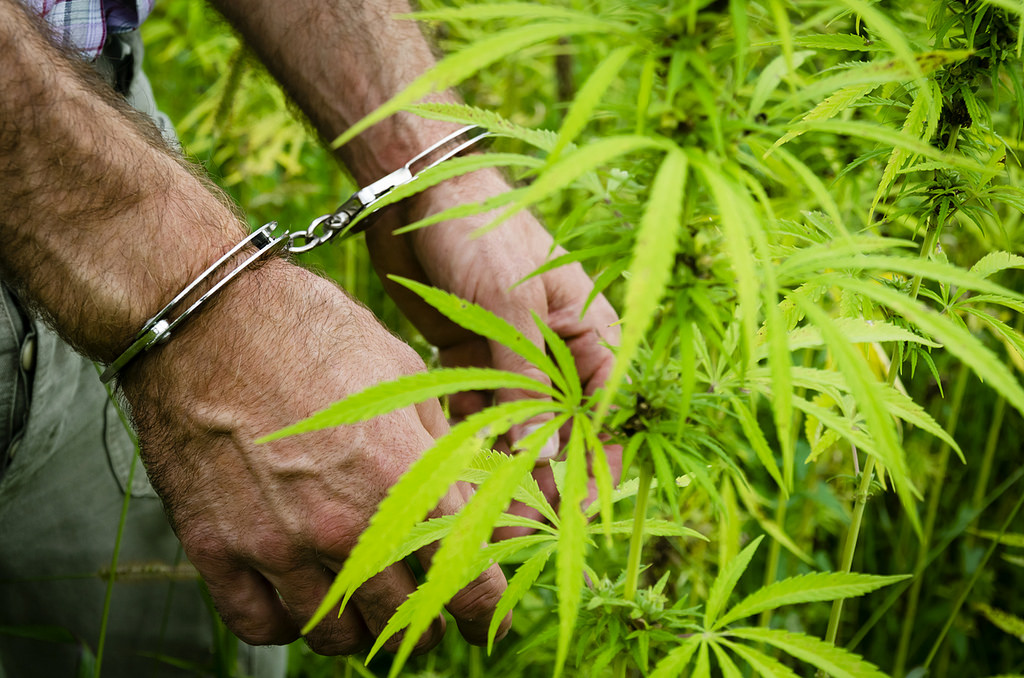Federal marijuana trafficking cases continued to decline in 2022, according to the latest annual report from the U.S. Sentencing Commission (USSC).
As more states have moved to legalize cannabis and federal priorities have shifted, prosecutions for marijuana-related cases have significantly declined over the years. The number of federal cannabis trafficking offenders has fallen from about 5,000 in 2013 to just under 806 last year, USSC found.
Meanwhile, trafficking cases involving powder cocaine, fentanyl and methamphetamine increased from 2021 to 2022.
The report also shows that marijuana cases carry the lowest sentences among the six drug types that USCC tracks, with the average sentence in a cannabis trafficking case being 33 months, compared to 94 months for methamphetamine and 65 months for fentanyl, for example.
The commission has separately proposed amending its guidelines for federal judges to treat prior marijuana possession offenses more leniently in sentencing decisions. Earlier this month, the Justice Department testified in support of the change at a USSC public hearing.
Legalization advocates have long argued that providing access to regulated marijuana markets for adults would drive down demand for illicit products, translating into fewer arrests.
The new USSC report is the latest to support that idea by showing the gradual decline in federal cannabis trafficking cases as more states have enacted legalization.
Meanwhile, federal data from Customs and Border Protection (CBP) that was released in January shows that cannabis seizures fell to a record low in Fiscal Year 2022, continuing an enforcement trend that advocates attribute to the state-level legalization movement.
A report from the Government Accountability Office (GAO) that was released last year also paints a clearer picture of who is getting caught up in its enforcement activities. At checkpoints across the country, agents are mostly taking small amounts of marijuana from American citizens, rather than making large busts of international cartels like some might assume.
Also, consistent with other studies and federal reports, the analysis revealed a significant decline in cannabis seizures at checkpoints overall since 2016. In 2016, there were 70,058 pounds of marijuana seized at checkpoints by Border Patrol, compared to 30,828 pounds in 2020.
FBI’s Uniform Crime Reporting (UCR) program has similarly shown a notable decrease in cannabis “arrests” that are made at the local and state level as more states enact reform. (However, experts have raised questions about the quality of FBI’s data, based on alleged confusion among law enforcement agencies about reporting requirements.)
In another report from last year, the Congressional Research Service said that the spread of legal cannabis states domestically, combined with international reform efforts, has reduced demand for illicit marijuana from Mexico.
As part of its Fiscal Year 2023 performance budget summary submitted to Congress last year, the Drug Enforcement Administration (DEA) also acknowledged that as more marijuana is being produced domestically in the U.S., it’s undermining illicit cannabis trafficking across the southern border.
A study released by the Cato Institute in 2018 found that “state-level marijuana legalization has significantly undercut marijuana smuggling.”
Federal prosecutions of drug-related crimes overall increased in 2019, but cases involving marijuana dropped by more than a quarter, according to an end-of-year report released by Supreme Court Chief Justice John Roberts in December. (Full Story)

